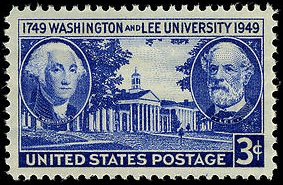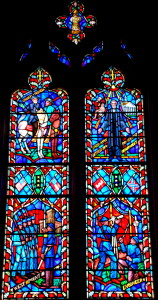A southern editorial on how war reveals a person’s true character.
From the Richmond Daily Dispatch March 19, 1864:
Demoralization.
We hear a great deal about the demoralizing effects of the war in the United States and in the Confederacy. Doubtless this is true to a certain extent. But, in the main, this war, like all other wars, has simply revealed the native tiger and beast in human nature — not created it. It has, as a French friend of ours used to pronounce the word, “devil-up” the character of the community. The men who are now so openly bad, the monsters who are so bloodthirsty, the speculators who are so ravenous, the tyrants who are so cruel, were always bad, ravenous, bloody, and cruel. The war has simply thrown the broad glare of a policemen’s lantern upon midnight prowlers, rogues, and murderers. It has simply torn the veil from the character of men, and revealed them for the first time to the world, and perhaps to themselves. “Is thy servant a dog, that he should do this thing?” said Hazael, when the man of God predicted the atrocities he should commit in his future career. Yet he was a dog though he knew it not, and so the dogs of the present war were always dogs, possessed of all the vile instincts which the war has simply developed and disclosed to their own eyes and those of the world.–They need not charge the war with their demoralization. The war has only found them out, and made patent the original and inherent corruption of their character.
But, when we talk of the demoralization of the war, has not the war done something the other way? Has it not revealed good qualities as well as bad, and introduced to the world and to themselves virtuous as well as evil men? Has it not disclosed in the almost unknown Robert E. Lee a closer resemblance to George Washington than we had supposed humanity could ever again furnish? But for the war, Stonewall Jackson might have gone to his grave an obscure professor in the Virginia Military Institute, ignorant, in his saintlike humility, of those wonderful qualities which have filled the world with the glory of his name. And what a host of virtuous and heroic deeds has this war elicited in the citizen soldiery of the South, deeds which are innumerable as the stars of Heaven, and which would never have been seen but for the darkness that has covered the sky! Like the ordeal of the last Judgment, the war has separated the wheat from the tares, the sheep from the goats, the just from the unjust, and revealed all men to themselves and to the world in their real character.
From the same issue:
Gen. R. E. Lee.
–A friend who travelled with the General on his way down from Gordonsville to Richmond, says he has a very hail and vigorous appearance and looks as though there were a dozen or more good campaigns in him yet. He is a man of fine commanding six feet or upwards in height, and weighs probably the rise of one hundred and eighty. But for his white beard, which he wears entire, but trimmed short, and his silvery hair, he would be comparatively a young looking man, barely more than in the prime of life. The General is affable, polite, and unassuming, and shares the discomforts of a crowded railroad coach with ordinary travellers. He travels without staff or other attendant. He is first to rise and offer his seat to ladies, if any difficulty occurs in seating them. He talks freely about affairs generally, but had little to say, at the time we write of concerning the army and the country. At one station where an eager crowd were gazing at him he suddenly remarked: “I suppose these people are speculating as to what is on foot now.” He speaks quickly, sometimes brusquely, and with the tone of one who is accustomed to command. His countenance is one indicative of more that and caste than his habitual tolerance and amiability would lead one to expect. He looks the stern soldier. The General is as unostentatious and unassuming in dress as he is in manners. He were a Colonel’s cost, (three stars without the wreath) a good deal faded, blue pantaloons, high top boots, blue cloth and high felt hat, without adornment save a small cord around the crown. Thus appeared our great chieftain, our hero patriot, our Christian soldier, our beloved Robert E Lee, as a railroad traveller. Lynchburg Virginian.


